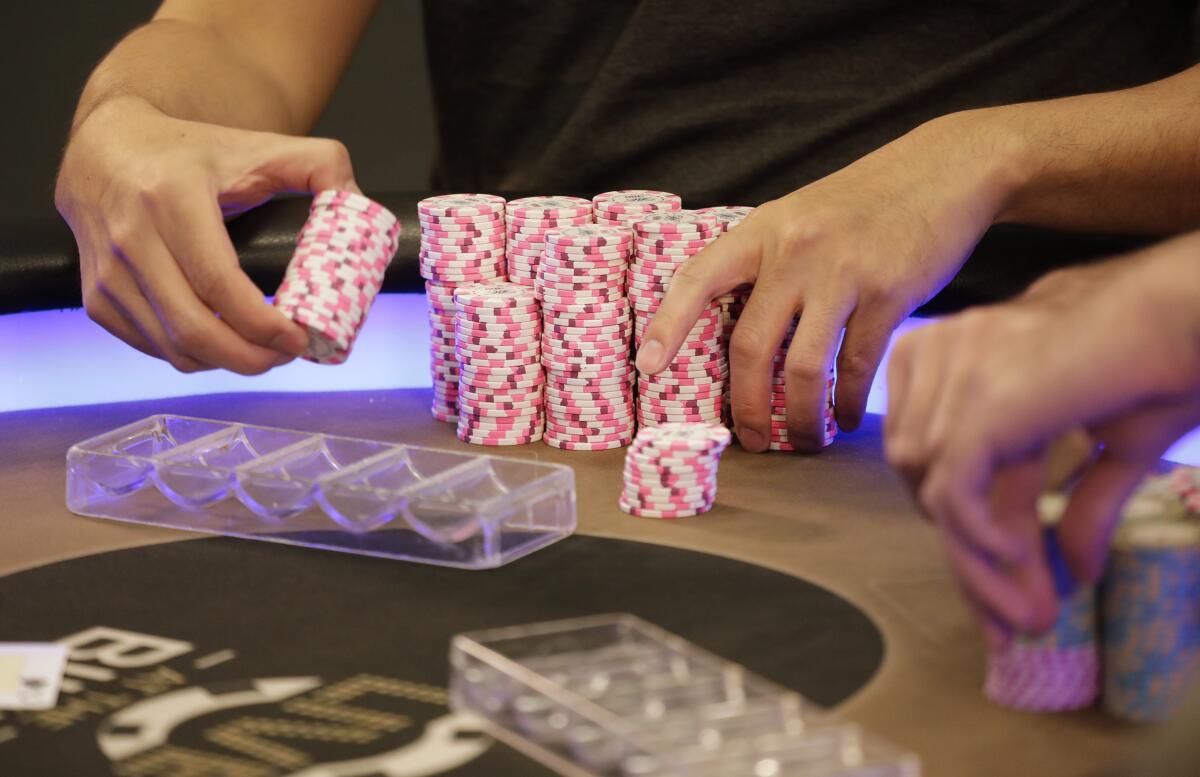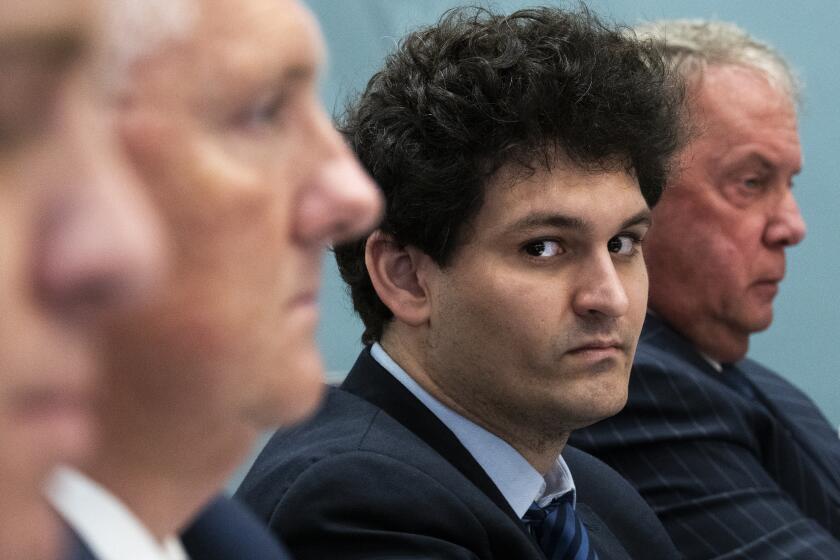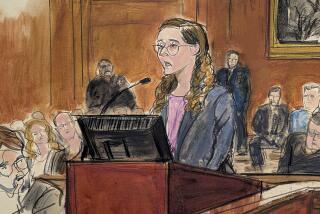Poker, blackjack, crypto – they’re all related, says this former Bankman-Fried compatriot

- Share via
In the months before the crypto empire he helped build crashed and burned, the former co-head of Alameda Research tweeted enthusiastically about his aggressive gambler’s instincts, how he honed them at poker and blackjack, and how he applied those lessons to cryptocurrency trading.
“I may or may not be banned from 3 casinos for this,” Sam Trabucco once tweeted about counting cards at blackjack tables.
Trabucco’s tale is a mere sideshow to crypto exchange FTX’s black magic act, where billions in crypto “investments” disappeared in a dramatic flash earlier this month.
But it does provide insight into the mentality of those who frothed up a crypto bubble that emptied the pockets of individuals aggressive enough to buy into FTX Chief Executive Sam Bankman-Fried’s view of the world and the riches to come from crypto.
‘Also I bought a boat, that’s been cool.’
— Sam Trabucco on Twitter
Alameda Research, which Trabucco helped run before he quit in August, is a Bankman-Fried hedge fund. Alameda appears to have used FTX customer crypto to make up for tragically bad investment decisions. Trabucco, who hasn’t publicly been accused of any wrongdoing, abruptly stepped down as co-chief executive officer in August, leaving Caroline Ellison as Alameda’s sole CEO.
While at Alameda, Trabucco’s tweeted, in positive terms, about the connection between poker, blackjack and crypto.
“Bigger is Bigger (when Betting is Better),” he wrote in a Jan. 12, 2021, tweet thread explaining how gambling strategies influenced Alameda’s trades. It was the same series of posts in which Trabucco bragged that he may — or may not — have been banned from three casinos.
This would-be crypto trillionaire promised to give away his wealth, but did he ever really mean it?
A post from July of this year showed a poker table with chips on it, with the comments “I always wanted to do this” and “I should stick to trading.” The next post revealed Trabucco was in Las Vegas.
(Trabucco isn’t the only Bankman-Fried alumnus with a questionable connection to poker. Dan Friedberg, who left FTX shortly before its collapse, once served as an attorney in connection with a poker cheating scandal.)
Trabucco said Alameda employed Vegas-like risky bets in the firm’s business. Months ago, when exchange OKX paused withdrawals, Alameda aggressively started buying out positions of people trying to reduce exposure to the exchange, Trabucco said. “Not only are we not sellers, we’re HUGE buyers — even though it’s risky — because, in fact, we can take the risk and this trade is GREAT according to what we know — was crucial, and it’s something we’re always aiming to do,” he said in a January post.
Speaking on a YouTube UpOnly episode in 2021, Trabucco talked about playing poker in college and two years afterward. “Now I really don’t tilt very much,” he said, referencing a poker term for when players let emotions overwhelm them. Trabucco said he now tries to avoid tilting, but admitted to sometimes making impulsive purchases.
“This watch, I quite literally don’t remember buying this watch,” Trabucco said on UpOnly.
Trabucco earned a degree in math with computer science from Massachusetts Institute of Technology in 2015, according to his LinkedIn profile. He was into creating crossword puzzles for a while. He even had one published in the New York Times while in college. He interned at State Street, and was a trader at Susquehanna International Group before joining Alameda in 2019, about two years after Bankman-Fried started the trading firm.
Trabucco didn’t return requests seeking comment.
Much is still unknown about the exact details of Alameda’s troubles and how its losses helped send it, FTX and more than 130 related entities into bankruptcy court.
Los Angeles Times staff writer Russ Mitchell contributed to this report.
More to Read
Inside the business of entertainment
The Wide Shot brings you news, analysis and insights on everything from streaming wars to production — and what it all means for the future.
You may occasionally receive promotional content from the Los Angeles Times.











